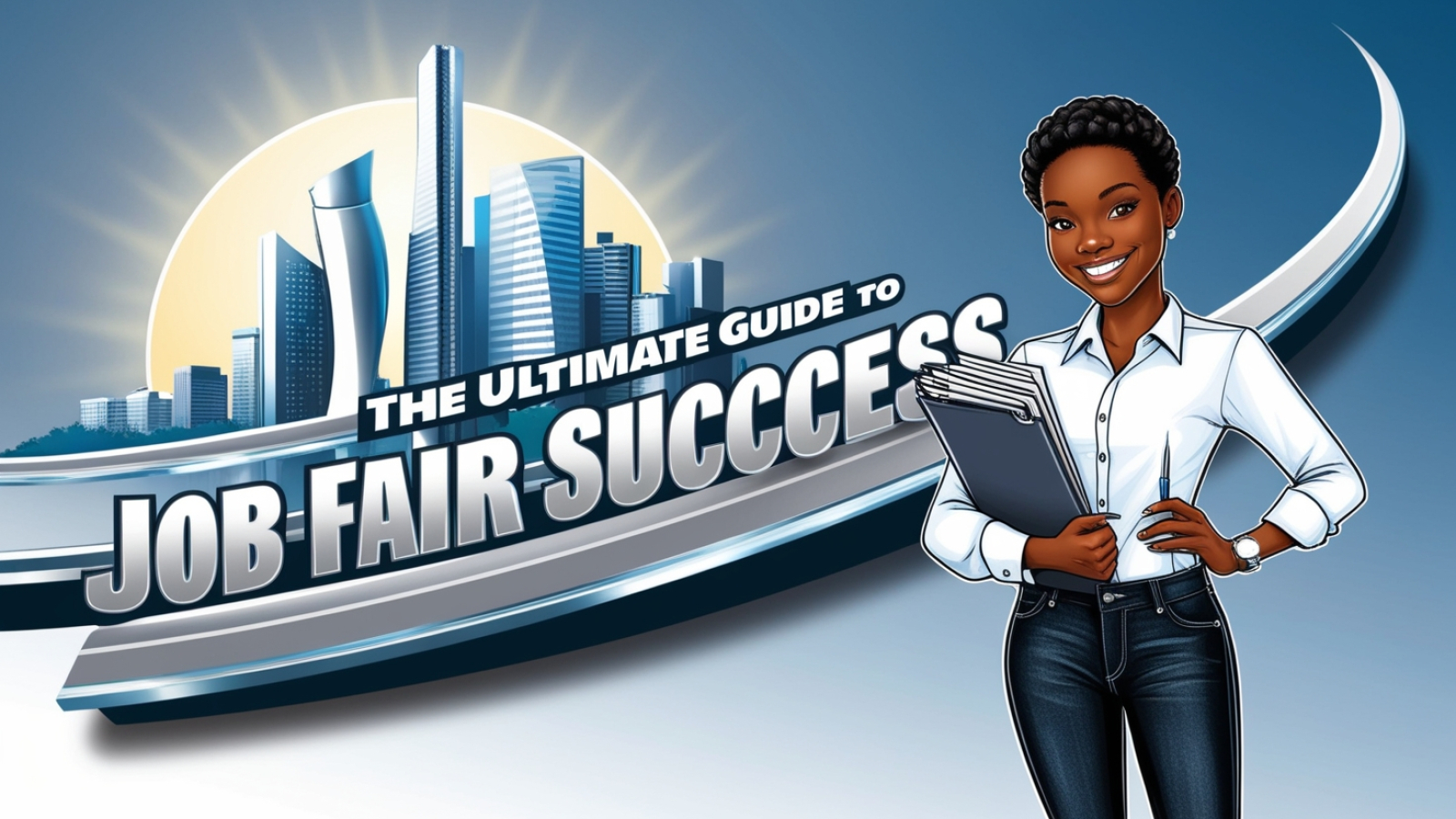Job fairs are excellent opportunities to connect with potential employers, network with industry professionals, and explore various career options. However, to make the most of a job fair, you need to be well-prepared and strategic. This ultimate guide to job fair success will provide you with all the tips and strategies you need to stand out and make a lasting impression.
1. Research the Job Fair
a. Know the Participating Companies
Before attending the job fair, obtain a list of the companies that will be present.
Example: Visit the job fair’s website or contact the organizers to get the list of participating employers.
b. Understand Company Profiles
Research the companies you are interested in to understand their values, cultures, and job openings.
Example: Visit the companies’ websites, read their mission statements, and review their latest news and achievements.
c. Identify Your Targets
Prioritize the companies you want to visit based on your career goals and interests.
Example: Make a list of your top five companies and gather detailed information about their job vacancies and requirements.
2. Prepare Your Documents
a. Update Your Resume
Ensure your resume is current, error-free, and tailored to the types of positions you are seeking.
Example: Highlight relevant skills, experiences, and accomplishments that match the job descriptions of your target companies.
b. Print Multiple Copies
Bring several copies of your resume to distribute to different employers.
Example: Print at least 10-15 copies of your resume, depending on the number of companies you plan to visit.
c. Create a Portfolio
Compile a professional portfolio with examples of your work, certifications, and references.
Example: Include printed versions of important projects, certificates, and letters of recommendation.
3. Dress Professionally
a. Follow Professional Attire
Dress in business attire that is appropriate for the industry you are targeting.
Example: Wear a suit or professional dress for corporate roles, and business casual for tech or creative industries.
b. Pay Attention to Grooming
Ensure you are well-groomed, with clean and tidy hair and nails.
Example: Avoid excessive perfume or cologne and keep accessories minimal and professional.
c. Comfort Matters
Choose attire that is comfortable for walking and standing for long periods.
Example: Opt for comfortable, polished shoes that you can wear all day without discomfort.
4. Develop an Elevator Pitch
a. Craft Your Introduction
Prepare a brief, compelling introduction that summarizes who you are and what you are looking for.
Example: “Hi, my name is Jane Doe. I recently graduated with a degree in Marketing, and I have experience in digital marketing and social media management. I am particularly interested in opportunities within your company’s marketing department.”
b. Highlight Key Strengths
Include your key skills, experiences, and career goals in your pitch.
Example: “I have a strong background in creating successful online campaigns and am looking to apply my skills in a dynamic and innovative company like yours.”
c. Practice Makes Perfect
Rehearse your elevator pitch until it feels natural and confident.
Example: Practice in front of a mirror or with a friend to receive feedback and improve your delivery.

5. Navigate the Job Fair Strategically
a. Arrive Early
Arrive at the job fair early to avoid long lines and have more time to speak with recruiters.
Example: Plan to arrive at least 30 minutes before the job fair starts.
b. Prioritize Your Visits
Visit your top priority companies first to ensure you have enough time to speak with them.
Example: Head directly to your top five companies upon arrival, then visit other companies on your list.
c. Take Notes
Bring a notebook to jot down important details and contact information from your conversations.
Example: Write down the names of recruiters, job openings discussed, and any follow-up actions required.
6. Engage Effectively with Recruiters
a. Ask Insightful Questions
Prepare thoughtful questions to ask recruiters about their companies and job openings.
Example: “Can you tell me more about the team I would be working with?” or “What are the key skills you look for in candidates for this role?”
b. Show Enthusiasm
Demonstrate genuine interest in the company and the positions they offer.
Example: Express enthusiasm about the company’s projects and how your skills align with their needs.
c. Collect Business Cards
Obtain business cards from recruiters for follow-up communication.
Example: Politely ask for a business card at the end of your conversation and thank them for their time.
7. Follow Up After the Job Fair
a. Send Thank-You Emails
Send personalized thank-you emails to the recruiters you spoke with within 24-48 hours.
Example: “Dear Mr. Smith, Thank you for taking the time to speak with me at the XYZ Job Fair. I am very interested in the Marketing Coordinator position we discussed and believe my skills would be a great fit for your team.”
b. Reiterate Your Interest
Reiterate your interest in the company and the specific roles you discussed.
Example: Mention a key point from your conversation to show you were attentive and engaged.
c. Connect on LinkedIn
Send connection requests on LinkedIn to the recruiters you met.
Example: Include a brief message reminding them of your meeting and expressing your interest in staying connected.
8. Reflect and Improve
a. Assess Your Performance
Reflect on your performance at the job fair and identify areas for improvement.
Example: Consider what went well and what could be improved in future job fairs, such as your pitch or the questions you asked.
b. Update Your Strategy
Adjust your approach based on your reflections to perform better at future events.
Example: If you found certain questions particularly effective, incorporate them into your strategy for the next job fair.
c. Continue Networking
Stay in touch with contacts made at the job fair and continue to build your professional network.
Example: Attend industry events, join professional groups, and engage with your network regularly.
Conclusion
Job fairs are valuable opportunities to advance your career if approached with preparation and strategy. By researching the event, preparing your documents, dressing professionally, developing a strong elevator pitch, navigating the fair strategically, engaging effectively with recruiters, following up, and reflecting on your experience, you can maximize your chances of success. These steps will help you stand out, make meaningful connections, and ultimately secure job opportunities that align with your career goals.




Add a Comment